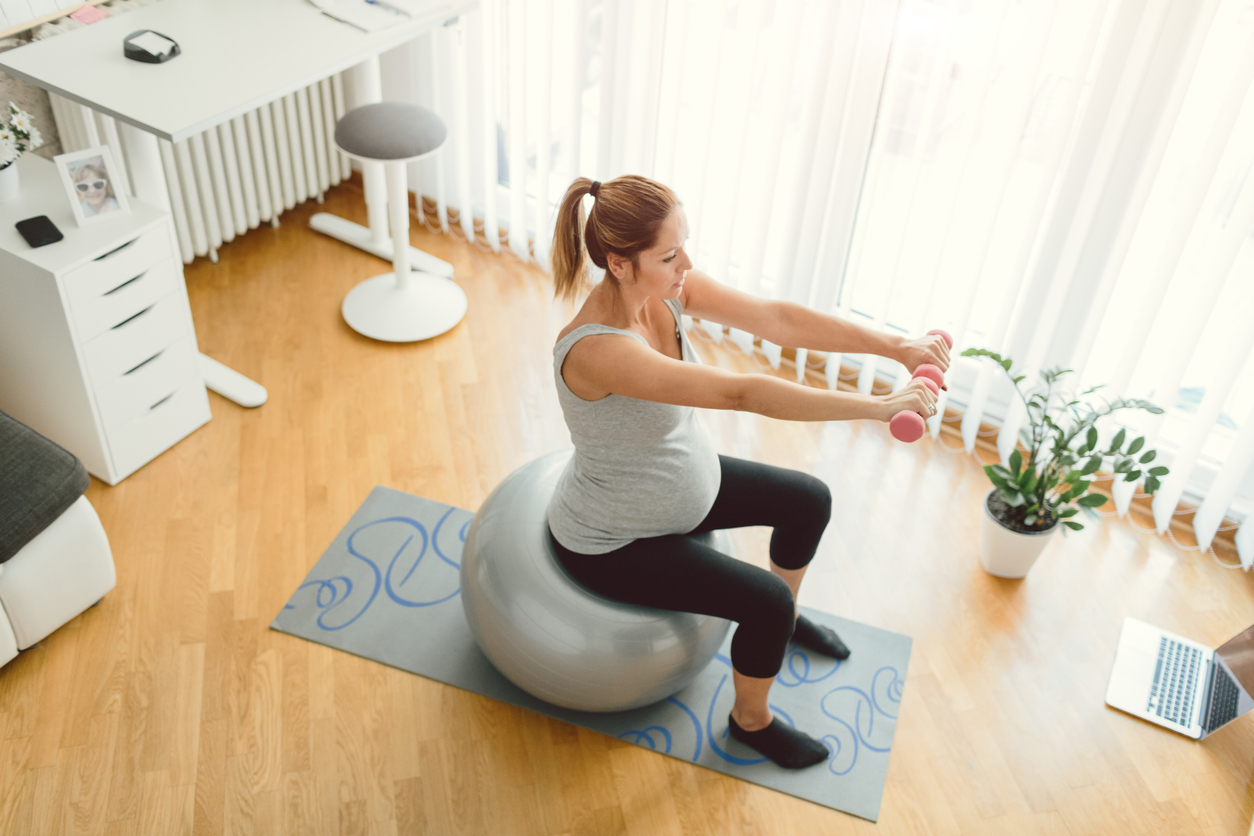Mental and physical health go hand in hand. This is well-known and well-documented. Although the reciprocal relationship between mental and physical health is pervasive throughout the life-cycle, there are certain times and certain conditions that require special attention to both the physical and mental issues at play.
Ask any woman who has experienced pregnancy, childbirth, postpartum, and child rearing, and they will tell you how much of a physical and emotional toll these life events take on the mind and the body. From the time of prenatal contemplation, women are bracing themselves for the impact. There are vitamins, exercises, and recommendations to “prepare” for what is to come. Studies have shown that a mother’s mental health during pregnancy can affect their baby’s developing brain, and that is literally just the beginning of the maternal physical and mental health journey.
Physical Therapy and the Maternal Experience
According to Agile Virtual PT, pregnancy causes physical and hormonal changes which can affect the musculoskeletal system. During these changes, pregnant women may experience altered posture, muscle pain and weaknesses, as well as changes in bone alignment. Pregnancy can also magnify already existing conditions such as low back pain.
After pregnancy, or in the postpartum phase, shifting hormone levels and physical changes brought on by pregnancy and delivery can result in discomfort and concern. Women may experience sustained soreness, muscle imbalances, and altered spine mobility.
Don’t forget those postural changes that come along with nursing, baby-wearing, or carrying babies and additional siblings (sometimes simultaneously!). Those can also wreak havoc on a woman’s body.
A licensed physical therapist has advanced knowledge and training in managing prenatal and postpartum conditions that may lead to pain and discomfort. Physical therapy can be a wonderful option if you are a new or expecting mom looking for relief from one or more of these discomforts:
- Vaginal pain
- Cesarean scar pain
- Core weakness
- Episiotomy scar pain
- Lower back pain
- Muscle spasms
- Myofascial pain
- Pelvic floor dysfunction
- Pelvic joint pain
- Pelvic organ prolapse
- Upper back pain
- Upper quarter conditions
While the physical ailments can be addressed by a licensed physical therapist, addressing the mental and emotional ramifications of the transition, adjustment, and lifestyle impact is the job of a licensed mental health professional.
Motherhood and Talk Therapy
Although motherhood is a magical experience for most, about 50-75% of new moms experience depression and anxiety that ranges from mild to severe, and can sometimes be debilitating. For some women, the baby blues may even begin before giving birth. Mental well-being should be as important as a woman’s physical well-being during prenatal and postpartum care. If left untreated, these mental health concerns can cause challenges for both mother and baby. Notably, depression during pregnancy can be a strong indicator for postpartum depression.
According to the American Academy of Pediatrics, some symptoms of maternal depression and anxiety can include:
- Extreme sadness or anger without warning
- Feeling that they are “just going through the motions”
- Irrational fear of failure at motherhood
- Severe anxiety around their baby or children’s wellbeing
- Trouble completing everyday tasks
- Unusual irritability or anger
If there are physical ailments, discomforts, or maladies as a result of the pregnancy, labor, delivery, nursing, or baby wearing, these can also exacerbate any sense of hopelessness or helplessness that the mother might feel.
If a mom is feeling overwhelmed, in-person or virtual therapy is a great step to feeling better. When initiated at the onset, this intervention can be highly instrumental in helping a woman overcome the issues and concerns she is dealing with.
The Complete Package
Women should be aware of the specialized resources available to them to treat both their physical and mental well-being before, during, and after pregnancy. These courses of care have proven results — and are even available virtually.
For more information, talk with your OB/GYN if you think you could benefit from direct access physical therapy or speaking to a mental health professional.

